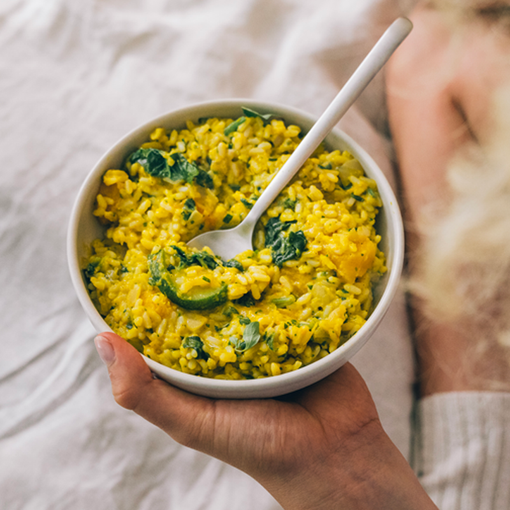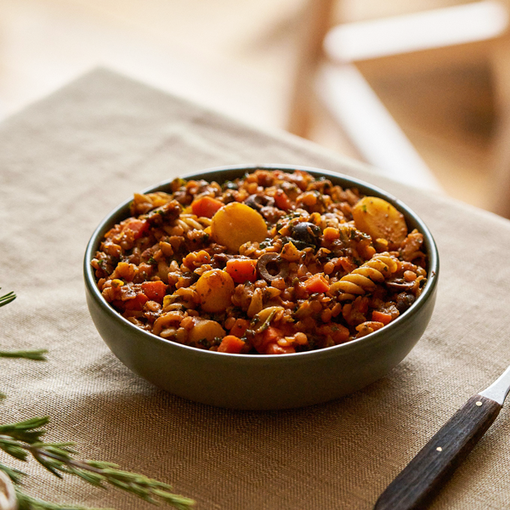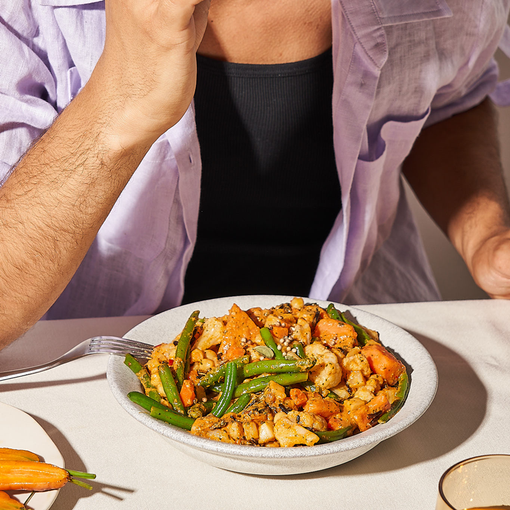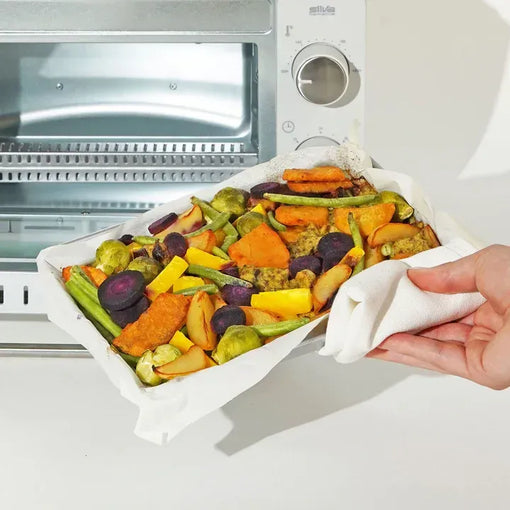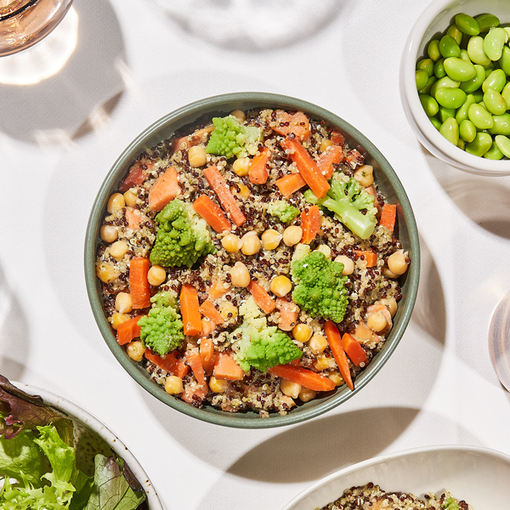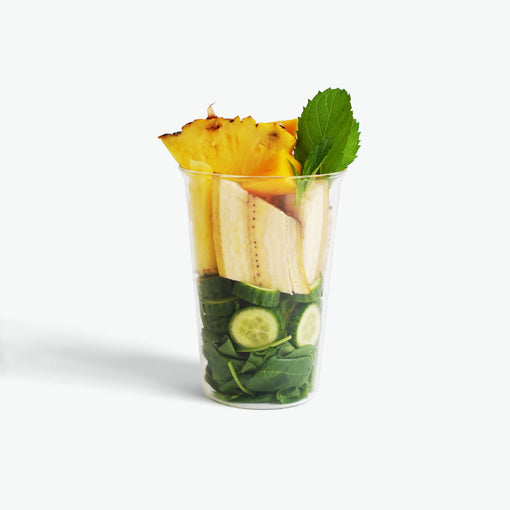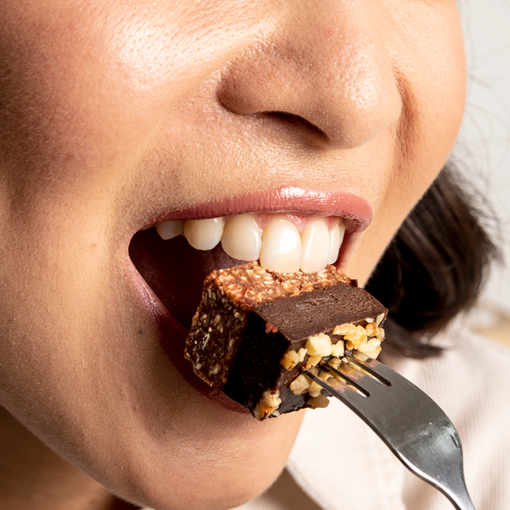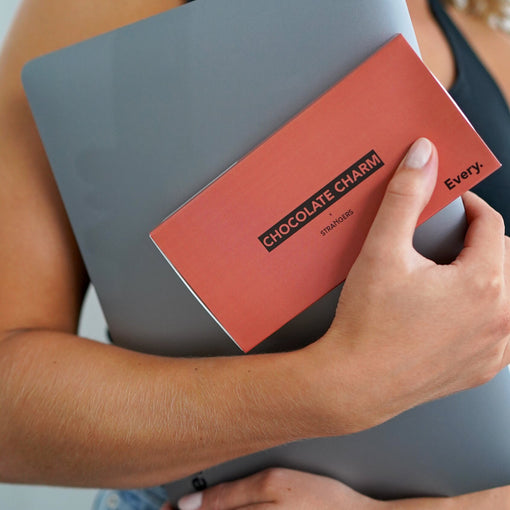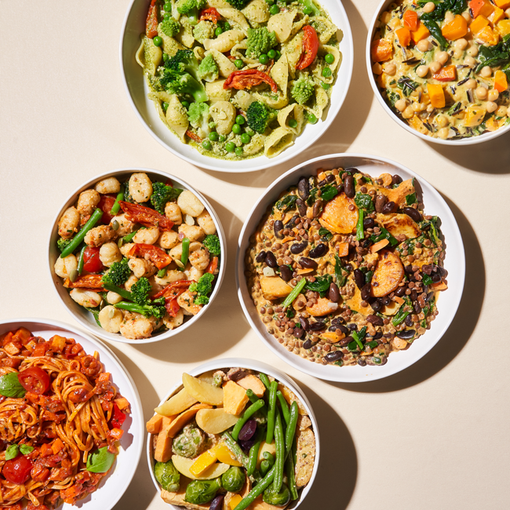Add {{ number }} more products to save {{ price }}
0
Add {{ number }} more products to save {{ price }}
noch 1 Produkt für gratis Versand (spare 5,99€)
Halfway through Veganuary with Every.

How is your Veganuary going?
Since 2014, hundreds of thousands of people around the world have been taking part every year in Veganuary - I'm going vegan this January. Starting in the UK, Veganuary has now become a global movement, sparking debates about the future of the food system, raising awareness and reaching more and more people.
Every. is also involved, because we want to prove with our dishes: Good and fast food can be both: Healthy for you and healthy for the environment.
 It is now well known that a diet rich in meat and animal products promotes typical diseases of affluence: High blood pressure, cardiovascular disease, high cholesterol, gout, osteoarthritis, type 2 diabetes, even cancer. A vegan and balanced diet and a healthy lifestyle is the best prevention. The environment is also happy to see more people trying out the purely plant-based diet. Because the production of animal foods consumes an extremely large amount of resources: especially land and water. 1 litre of milk costs 1000 litres of water, 1 kg of beef even 15,500 litres. Even if saving water in the shower is not wrong, each of us can achieve the most by changing our diet.
It is now well known that a diet rich in meat and animal products promotes typical diseases of affluence: High blood pressure, cardiovascular disease, high cholesterol, gout, osteoarthritis, type 2 diabetes, even cancer. A vegan and balanced diet and a healthy lifestyle is the best prevention. The environment is also happy to see more people trying out the purely plant-based diet. Because the production of animal foods consumes an extremely large amount of resources: especially land and water. 1 litre of milk costs 1000 litres of water, 1 kg of beef even 15,500 litres. Even if saving water in the shower is not wrong, each of us can achieve the most by changing our diet.
The same applies to the climate: almost half of the greenhouse gases emitted worldwide are caused by the production of animal-based foods. The CO2 footprint of a vegan is 70% lower than the average. Our environment is shaped by our eating habits: 75% of all agricultural land is currently used for the production of animal-based foods. That is as large as the entire African continent. In Germany, too, more than half of the cultivated grain is fed to animals.
Imagine if all that was directly available to us as food? Theoretically, you save 18 kg of grain per day that you do without animal products compared to the average German. Also, the deforestation of the rainforest is almost entirely due to our hunger for meat. If we ate plant proteins (like soy) grown on this land directly, we could get 15x more protein than if we took the detour via farm animals. Animals are generally quite inefficient when it comes to converting the plants they eat into protein. Most resources are lost this way.
 What would a world full of vegans look like?
What would a world full of vegans look like?
We can't say for sure, because even at the moment the production of plant-based foods is partly dependent on animal by-products - like manure used as fertilizer. Nevertheless, you can take a look into the future and dream: In a vegan world, the first thing you would notice is how much space is available at once. The oceans could recover from decades of overfishing, the air would be cleaner again. There would be more biodiversity in our fields again and less animal suffering. Your participation in Veganuary is a good start in the right direction!
By the way, many animal products can easily be replaced by a plant-based alternative. In no time at all you'll be used to the new taste of oat or pea drinks, vegan cheese is also getting better and better and we're already faced with a huge selection of deceptively real meat substitutes. If you're not at all lacking in animal-flavoured stuff - all the better! The world of plants has much more colourful and nutritious products to offer anyway. Feel free to click through our colorful bowls.
References:







